Business
Tony Elumelu Reveals How Buhari, Abba Kyari Blocked His 2017 Oil Field Acquisition
Published
8 months agoon
By
Ekwutos Blog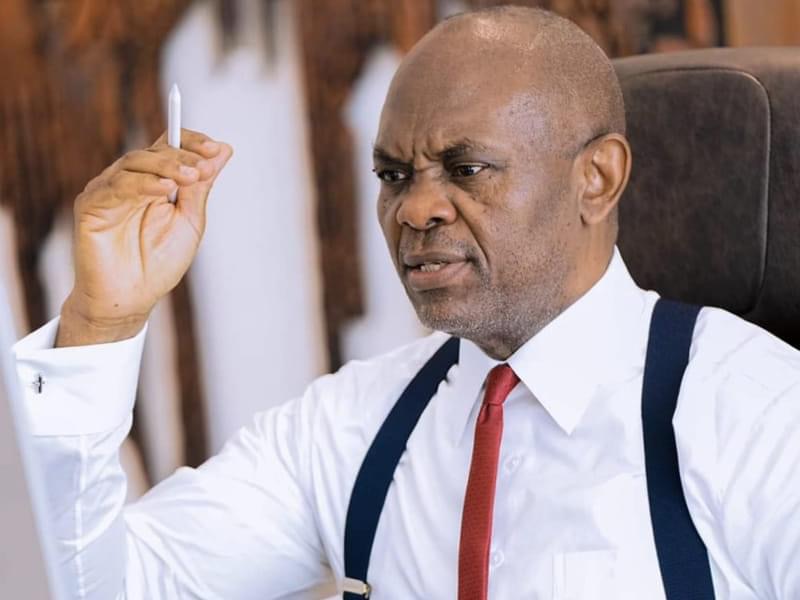
Tony Elumelu says Buhari and Abba Kyari blocked his 2017 oil field purchase, despite raising $2.5bn for the deal.
The Chairman of Heirs Holdings, Mr. Tony Elumelu, has disclosed how former President Muhammadu Buhari and his chief of staff, the late Abba Kyari, blocked his initial move to acquire an oil field in 2017.
Elumelu, who is also the Chairman of the United Bank for Africa Plc, said this in an interview in The Financial Times. According to him, Heirs Holdings was looking to purchase an oilfield since 2017, and had raised $2.5 billion to purchase one.
But he alleged that in a twist, Buhari and the late Abba Kyari, blocked the deal.
He said he was told that Nigeria couldn’t allow something of such strategic importance to fall into the hands of a private operator. This, according to Elumelu, defied logic since he would have been purchasing it from a foreign company.
However, Elumelu’s decision to buy a 45 per cent stake in an oilfield three years ago surprised many. International oil companies such as Shell, Total and Eni were selling off their shallow water assets in Nigeria, with local companies taking charge. In 2021, his Heirs Holdings acquired OML 17, an onshore oilfield as part of a deal that included $1.1 billion in financing from a consortium of global and regional banks and investors.
Shell, Total and Eni each had sold stakes in the OML 17 field, which has production capacity of 27,000 barrels of oil equivalent per day and estimated reserves of 1.2 billion barrels of oil equivalent, Heirs said.
When asked if he felt like getting in at the end of the party by buying an oil asset in the age of energy transition and environmental, social and governance investing, Elumelu said: “We wanted to become a Fortune 500 company and we estimated what we needed. It’s not naira, it’s huge dollars.”
Energy security is crucial for a country that doesn’t produce enough electricity for its roughly 200 million citizens, he added.
He said he discovered first-hand why international oil companies were partly divesting from onshore assets, after criminal gangs began stealing crude from his pipelines.
In 2022, when things got to a point where his company had to shut down production, Elumelu vented his frustration on social media, tweeting: “How can we be losing over 95 per cent of oil production to thieves?”
Today, though, business is looking up. Elumelu, according to the newspaper, showed the status updates he received on his phone from the field: 42,000 barrels of crude pumped out daily. Theft still takes away about 18 per cent of production, he said.
When asked who was behind oil theft in the country, he said: “This is oil theft, we’re not talking about stealing a bottle of Coke you can put in your pocket. The government should know; they should tell us. Look at America — Donald Trump was shot at and quickly they knew the background of who shot him. Our security agencies should tell us who is stealing our oil. You bring vessels to our territorial waters and we don’t know?”
The proponent of Africapitalism stressed the need for Africa’s private sector to actively contribute to the continent’s growth.
“We need to run government like a business,” is his formulation of how African governments should work, with administrations held accountable by legislatures as shareholders do chief executives.
Speaking about his career trajectory, Elumelu whose father was a builder and mother a caterer said: “I had a very fast career.”
At 26, having earned a masters in economics at the University of Lagos, he became a branch manager of the bank where he began his career. “It was unheard of. I like to take my destiny in my hands.”
Elumelu was at the helm of UBA for another five years until a central bank edict that turfed out long-serving bank bosses put him out of a job.
“2010 was a pivotal year for me,” he said while speaking about his ouster as UBA boss.
“The central bank ruling was a complete surprise . .Was it fair? Look, as someone who believes in governance, it probably makes sense, but it was a shock. But it was also liberating, catalysing,” he added.
By the end of that year, he had formed Heirs Holdings, the investment engine that launched the second act of his career and turned him from a banker to a multi-sector magnate.
“I don’t live for myself or my family alone, I know people look up to me,” he said of his fame outside of the boardroom.
“I try to make sure I don’t disappoint people. Young Africans need role models, they want people they can look up to,” he added.
If Elumelu is thriving, his country decidedly is not. Nigeria is in the grip of its worst economic crisis in a generation, with growth stalling and inflation at levels not seen in almost three decades.
Elumelu’s philosophy of “Africapitalism” is based on the premise that the continent cannot grow solely through the government, and that the private sector should actively invest even when — especially when — socio-economic conditions are tough.
“We can sit here today and the easiest part of the conversation would be to talk about all the things that have gone wrong, all the things that people have failed to do.
“But therein lies the philosophy of Africapitalism. For far too long, we have blamed foreign powers. We have blamed our own leaders. But what are we as the private sector doing to make things better? It’s a call on the private sector to stand up and show the way. Let us show the way through what is in our own power. We have the power to make investment decisions.”
With investments in 20 African countries and thousands of employees, he believes he is playing his own part. And through grants from his eponymous foundation, he says he is “democratising luck” for young entrepreneurs.
“I have my frustrations across the continent but I also have my wins . . . what I’m saying is we need to do something to have a better society.”
As a member of President Bola Tinubu’s presidential economic advisory committee, he is one of a handful of business leaders close to the administration. The reforms that Tinubu — whose “courage” Elumelu likes — has embarked on are necessary for long-term growth, Elumelu said, but he wonders if the sequencing of removing costly but popular fuel subsidies and a sharp devaluation of the naira currency could have been implemented better to first provide a social safety net for the most vulnerable in society.
“I support it, totally,” he says of skilled young Nigerians emigrating. “I don’t have a problem with people saying ‘I’m going to Canada, UK or US.’
“Joblessness is the betrayal of a generation. You’ve gone to school and come back with your dreams and aspirations and you don’t have the opportunity . . . People who decide to find solutions elsewhere, no one should stop them. But for those who decide to stay, they should try to create an impact and build a legacy.”
Be sure to follow ekwutosblog for confirmed updates
You may like
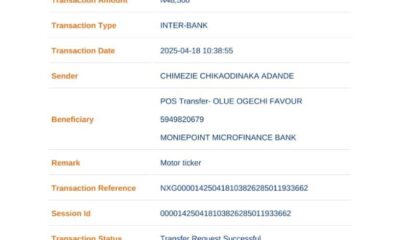

IMO GOVERNMENT DISOWNS FRAUDULENT SIENNA LEVIES, ORDERS CRACKDOWN ON EXTORTIONISTS
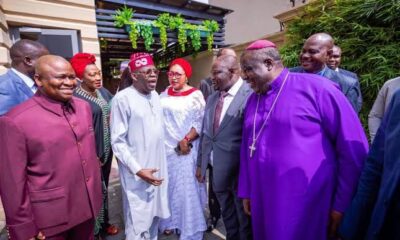

PRESIDENT TINUBU’S EASTER MESSAGE TO THE NATION
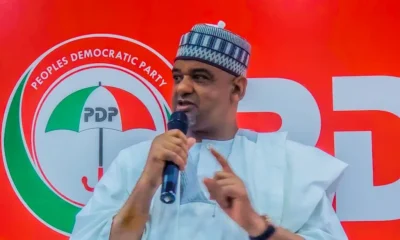

APC more divided than PDP – Damagum declares as he receives defectors
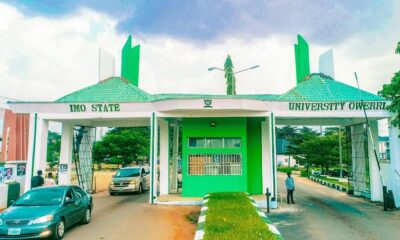

Six IMSU Law Graduates Bag First Class at the Nigerian Law School


Europa League leading scorers head of semi-final fixtures


Trailer crashes on Lagos-Ibadan Expressway
Business
PwC exits nine African countries to focus on markets with growth prospects
Published
1 day agoon
April 17, 2025By
Ekwutos Blog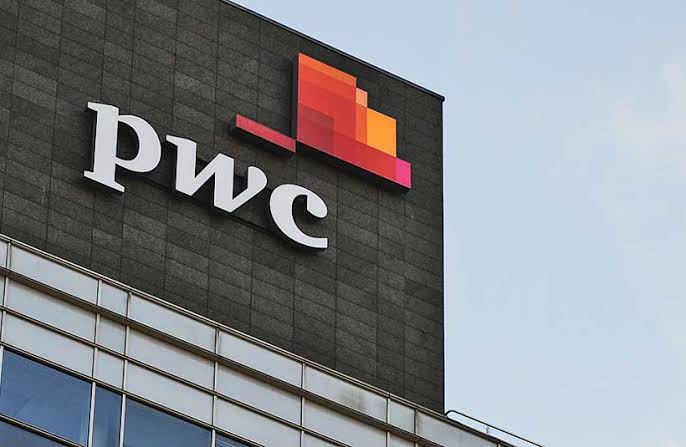
PricewaterhouseCoopers (PwC) has announced the closure of its operations in nine Sub-Saharan African countries.
The affected countries include the Ivory Coast, Gabon, Cameroon, Madagascar, Senegal, the Democratic Republic of Congo, the Republic of Congo, the Republic of Guinea, and Equatorial Guinea.
In a statement on its website, PwC said the decision was part of a broader strategy to concentrate on markets with long-term growth prospects “We remain confident in the long-term growth potential of the continent,” the firm noted, emphasizing continued operations in key markets such as Nigeria, Kenya, and South Africa.
A report by the Financial Times, citing sources familiar with the matter, revealed that revenues in several local markets had dropped by over a third in recent years. The slump reportedly followed directives to sever ties with clients deemed high-risk.
Although PwC did not provide specific reasons for the exits, the firm is also grappling with reputational challenges elsewhere. In Saudi Arabia, for instance, the country’s $925 billion sovereign wealth fund recently halted engagements with PwC. Additionally, the firm has reportedly ended affiliations with member offices in Zimbabwe, Malawi, and Fiji.
Business
Dollar to Naira exchange rate stands at ₦1,600.80 today
Published
1 day agoon
April 17, 2025By
Ekwutos Blog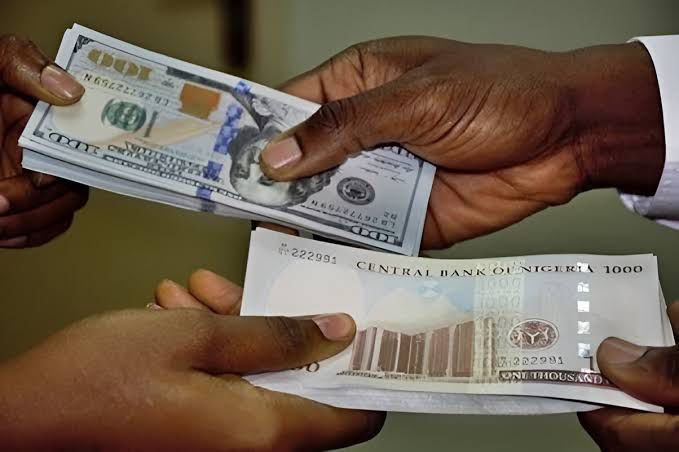
The exchange rate for the US dollar to the naira today is ₦1,600.7991, marking a slight decline of -0.432% compared to yesterday’s rate.
Over the past week, the dollar has shown relative stability against the naira, although it has slipped by -2.094% compared to its value seven days ago.
Within this one-week window, the exchange rate has fluctuated between a high of ₦1,636.71 recorded on April 10, 2025, and a low of ₦1,589.45 on April 14, 2025. The most significant single-day shift happened on April 10, when the naira strengthened, leading to a -2.252% drop in the dollar’s value.
Current Rates:
1 USD = ₦1,600.7991
1 NGN = $0.00062469
US Dollar to Nigerian Naira Conversion Table:
1 USD = ₦1,600.7991
3 USD = ₦4,802.3973
5 USD = ₦8,003.9955
7 USD = ₦11,205.5937
10 USD = ₦16,007.991
12 USD = ₦19,209.5892
15 USD = ₦24,011.9865
25 USD = ₦40,019.9775
30 USD = ₦48,023.973
45 USD = ₦72,035.9595
50 USD = ₦80,039.955
75 USD = ₦120,059.9325
100 USD = ₦160,079.91
300 USD = ₦480,239.73
400 USD = ₦640,319.64
500 USD = ₦800,399.55
750 USD = ₦1,200,599.325
1,000 USD = ₦1,600,799.1
3,000 USD = ₦4,802,397.3
5,000 USD = ₦8,003,995.5
7,500 USD = ₦12,005,993.25
10,000 USD = ₦16,007,991
15,000 USD = ₦24,011,986.5
25,000 USD = ₦40,019,977.5
50,000 USD = ₦80,039,955
75,000 USD = ₦120,059,932.5
100,000 USD = ₦160,079,910
Nigerian Naira to US Dollar Conversion Table:
1 NGN = $0.00062469
3 NGN = $0.00187406
5 NGN = $0.00312344
7 NGN = $0.00437282
10 NGN = $0.00624688
12 NGN = $0.00749626
15 NGN = $0.00937032
25 NGN = $0.0156172
30 NGN = $0.01874064
45 NGN = $0.02811096
50 NGN = $0.0312344
75 NGN = $0.0468516
100 NGN = $0.0624688
300 NGN = $0.1874064
400 NGN = $0.2498752
500 NGN = $0.312344
750 NGN = $0.46851601
1,000 NGN = $0.62468801
3,000 NGN = $1.87406402
5,000 NGN = $3.12344004
7,500 NGN = $4.68516006
10,000 NGN = $6.24688007
15,000 NGN = $9.37032011
25,000 NGN = $15.61720018
50,000 NGN = $31.23440037
75,000 NGN = $46.85160055
100,000 NGN = $62.46880074
Business
Access Holdings posts N642bn profit after tax, 88% gross earnings growth
Published
1 day agoon
April 17, 2025By
Ekwutos Blog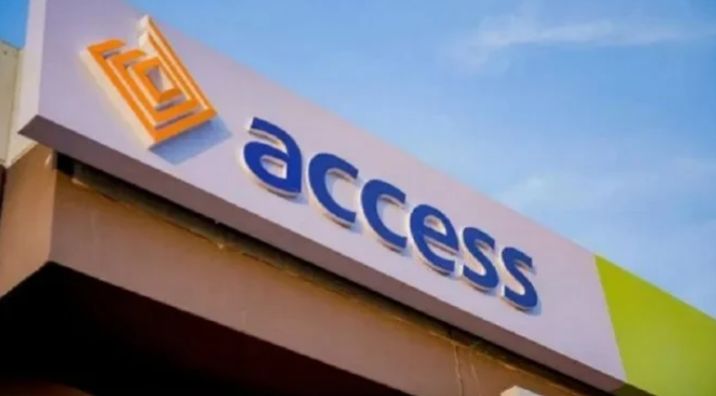
Access Holdings Plc says it recorded N642 billion as profit after tax in the full year of 2024, up from the N619.32 billion earned at the end of 2023.
In its audited financial statement for the year ended December 31, 2024, Access Holdings said the figure represents a 3.7 percent increase in profit after tax.
The group said its gross earnings grew by 88 percent year-on-year, rising from N2.594 trillion in 2023 to N4.878 trillion in 2024.
“Profit before tax (PBT) increased by 19% to N867.0 billion, while profit after tax (PAT) rose to N642.2 billion, despite inflationary and macroeconomic challenges.”
According to the statement, the bank’s total assets grew by 55.5 percent to N41.498 trillion and customer deposits rose by 47 percent to N22.525 trillion.
The financial institution said shareholders’ funds also increased by 72 percent, reaching N3.76 trillion.
In terms of economic sustainability, the statement noted that the bank recorded strong strides through its economic, social and governance (ESG) programmes.
“It facilitated $437.42 million in DFI inflows to support MSMEs across Africa, disbursed 1.6 million digital loans to low-income individuals, and booked its first N1.4 billion diaspora mortgage loan,” the statement further reads.
“The Group also achieved a 13.4% reduction in operational emissions, planted 57,302 trees, and enabled solar power adoption for 226 homes and businesses.
“Its headquarters was awarded the IFC EDGE (Excellence in Design for Greater Efficiencies) Green Building Certification for sustainable design and construction standards.”
The statement also noted that the bank posted significant gains across all performance metrics, “with interest income growing by 110% and fees and commissions rising by 81%”.
The organisation said international subsidiaries contributed 48.5 percent to the “banking segment’s PBT, demonstrating strong execution across key markets”.
In 2024, Access Holdings said it also became the first institution to comply with the Central Bank of Nigeria’s recapitalisation directive, raising N351 billion through a rights issue.
The group also said it paid N1.243 billion in penalties to regulatory authorities in 2024 for various infractions

IMO GOVERNMENT DISOWNS FRAUDULENT SIENNA LEVIES, ORDERS CRACKDOWN ON EXTORTIONISTS

PRESIDENT TINUBU’S EASTER MESSAGE TO THE NATION

APC more divided than PDP – Damagum declares as he receives defectors
Trending

 Trending6 months ago
Trending6 months agoNYA demands release of ‘abducted’ Imo chairman, preaches good governance
- Business6 months ago
US court acquits Air Peace boss, slams Mayfield $4000 fine

 Politics6 months ago
Politics6 months agoMexico’s new president causes concern just weeks before the US elections
- Entertainment6 months ago
Bobrisky transferred from Immigration to FCID, spends night behind bars
- Entertainment6 months ago
Bobrisky falls ill in police custody, rushed to hospital

 Politics6 months ago
Politics6 months agoRussia bans imports of agro-products from Kazakhstan after refusal to join BRICS

 Politics6 months ago
Politics6 months agoPutin invites 20 world leaders
- Politics1 year ago
Nigerian Senate passes Bill seeking the establishment of the South East Development Commission.

